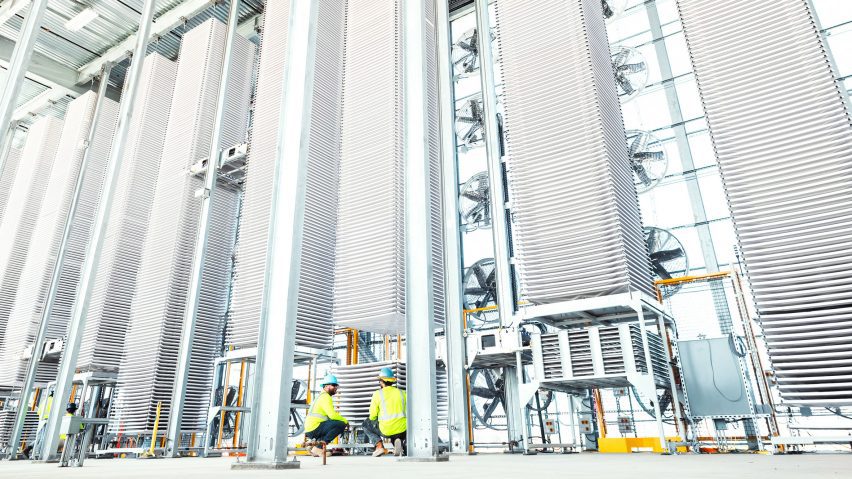Climate technology company Heirloom has opened the first commercial Direct Air Capture plant in the US, which will sequester atmospheric carbon for permanent storage using energy-efficient kilns.
Located in Tracy, California, the Heirloom facility will use a limestone filtration process to capture up to 1,000 tons of CO2 per year, which will be then stored permanently.
"This first commercial direct air capture facility is the closest thing on Earth that we have to a time machine, because it can turn back the clock on climate change by removing carbon dioxide that has already been emitted into our atmosphere," said Heirloom CEO Shashank Samala.
"The capacity of Heirloom's limestone-based technology to capture CO2 from the air has gone from 1 kilogram of CO2 to up to one million, or 1000 metric tons, in just over two years. We owe it to every climate-vulnerable citizen to continue to deploy our technology at the urgent pace required to reach billion-ton scale and beyond in time to stop the worst of climate change."
Heirloom's plant will employ electric kilns from decarbonization technology company Leilac in order to draw CO2 from the atmosphere to be stored "safely underground or embedded in concrete", according to Heirloom
The kilns are used to heat limestone, an ore composed largely of CO2 and the chemical compound calcium oxide, in order to create a cyclical process in which the material acts as a "sponge" that draws additional CO2 from the air.
The heating process extracts the CO2 from the limestone and leaves behind the calcium oxide in a powder form, which is then spread in vertical trays.
The powder, tending towards the chemical composition of limestone, naturally draws CO2 from the atmosphere to stabilise.
After a period of about three days, it is saturated with CO2 and the powder is returned to the kiln, where it's heated to begin the process again.
Heirloom partnered with technology company CarbonCure in order to store the extracted CO2 in concrete plants near the Tracy facility.
The storage process permanently stores the CO2 by embedding it into concrete.
"The beauty of concrete storage is its durability – the CarbonCure process keeps CO2 out of the atmosphere for centuries, even if the concrete is demolished," explained Heirloom in a statement.
Companies and government entities can then purchase CO2 "credits" from Heirloom in order to offset their own emissions.
Carbon credits are a purchasable exchange of CO2 emissions enacted by an individual or company from a middleman or carbon-capturing entity.
According to Heirloom, Stripe, Shopify, Klarna and Microsoft are already "catalytic buyers" of its credits, with Microsoft "agreeing to purchase up to 315,000 metric tons of CO2 removal from Heirloom over a 10+ year period".
Previously this year, researchers at Leigh University found a way to employ a copper-containing sorbent in DAC machines to make the carbon capture process three times more efficient.
The photography is courtesy Heirloom.

